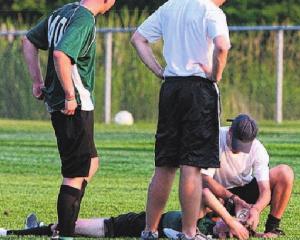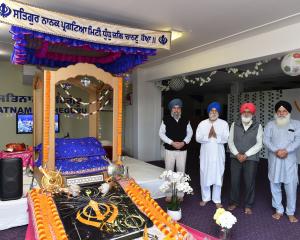A former Dunedin couple have regained custody of their daughter after two years, following a High Court decision overturning a care and protection order.
Justice Graham Panckhurst has ruled it was ''very unlikely'' the parents deliberately inflicted the then 8-month-old's injuries.
The couple, whose names are suppressed, lived in Dunedin when their baby was put into Child Youth and Family care after a hospital visit in July 2011 where she was found to have unexplained fractures.
After a family court hearing in December 2011, Judge Stephen Coyle found the injuries to be non-accidental, based on the specialist medical evidence given, and inflicted by her parents, despite ''a lack of evidence to suggest either were anything other than caring parents''.
Guardianship of the baby was awarded to a family member in the North Island and the parents given access. The parents then sold their house in Dunedin and moved to the North Island to be near their daughter.
The family appealed the decision, believing the baby's injuries were caused by Vitamin D deficiency rickets, diagnosed after her hospital visit in 2011.
The appeal between the family and the Ministry of Health was heard by Justice Panckhurst in the High Court at Dunedin in July.
Justice Panckhurst said in his decision released this week he believed there were clear signs the Ministry of Health case was less than compelling, although he acknowledged its witnesses, when viewed in isolation, were capable of establishing the grounds for making a care and protection order.
In light of new evidence at the appeal, he was satisfied there was ''heightened uncertainty'' in relation to the central conclusion the baby's injuries were deliberately inflicted and not related to her medical condition.
The evidence of Prof Stephen Nussey and insights from a British rickets case, which had similarities to this case, satisfied him it would be ''unsafe to act on the medical evidence as compelling to the virtual exclusion of a searching examination'' of evidence relating to the parents.
''It cannot be put aside on the simple reasoning that sometimes good people do bad things.''
There was nothing to indicate a propensity to deliberately cause harm to their daughter. They had regular contact with friends, family and medical professionals so it was ''amazing'' no sign of swelling, bruising or tenderness was observed, he said.
''I am satisfied it is very unlikely that these parents, in the circumstances which prevailed over a short period of about 14 weeks, deliberately inflicted the injuries from which C [the baby] suffered.''
As a result, he discharged the care and protection order and the custody and additional guardianship orders. He considered the orders appropriate, as the parents had regular ongoing contact with their child since she was taken into care.












